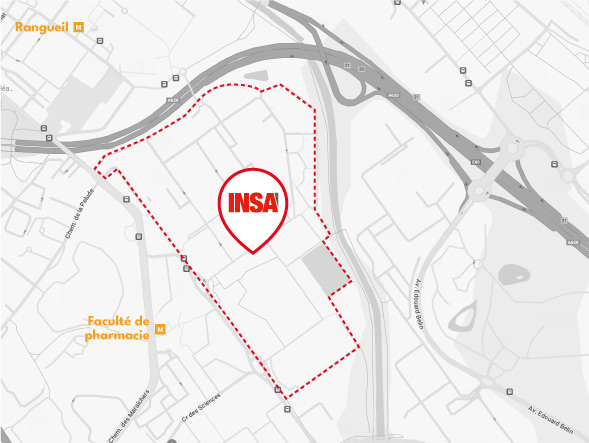-Introduction of general concepts associated with a process, including classification and schematization and the notion of unit operation.
– Presentation of the methodology for carrying out (macroscopic) mass balances on a process in stationary mode including the notion of variance
– Application of these concepts on case studies of increasing complexity
– Mass balances on different unit operations (separator, mixer, divider, etc.) and on processes combining these unit operations, reactors, etc. –
-Mass balances on installations with or without recycling
Industrial facilities
Description
Objectifs
The mass balance is an essential tool for quantifying the performance of industrial installations and optimizing them according to criteria of yield, production, productivity, etc. It is also an essential tool for the environmental assessment of processes and bioprocesses. This course therefore aims to train students in the functional analysis approach of processes by introducing the basic concepts associated with the study of processes, including their schematization and the writing of the corresponding macroscopic mass balances. It presents a methodology for solving these balances through the concept of the degree of freedom of a system (variance). These approaches are illustrated through case studies ranging from a unit operation to a complex process operating in steady state.
At the end of the course, the student will be able to:
- Understand the basic concepts associated with processes (continuous process, discontinuous process, reactions, separations, recycling) –
-Understand and analyze a process from the diagram and literal descriptive elements in order to identify the mass flows (flow rates and compositions)
- Calculate the variance of a system and a process
- Write and solve the mass balances associated with an industrial installation operating in steady state
- Present these results by checking their consistency (physical meaning, units..)
Pré-requis
none
Évaluation
L’évaluation des acquis d’apprentissage est réalisée en continu tout le long du semestre. En fonction des enseignements, elle peut prendre différentes formes : examen écrit, oral, compte-rendu, rapport écrit, évaluation par les pairs…
En bref
Crédits ECTS :
Nombre d’heures :

INSA Toulouse
135 avenue de Rangueil
31077 Toulouse cedex 4
Tél : 05 61 55 95 13
Fax : 05 61 55 95 00

Dans un souci d'alléger le texte et sans aucune discrimination de genre, l'emploi du genre masculin est utilisé à titre épicène.











